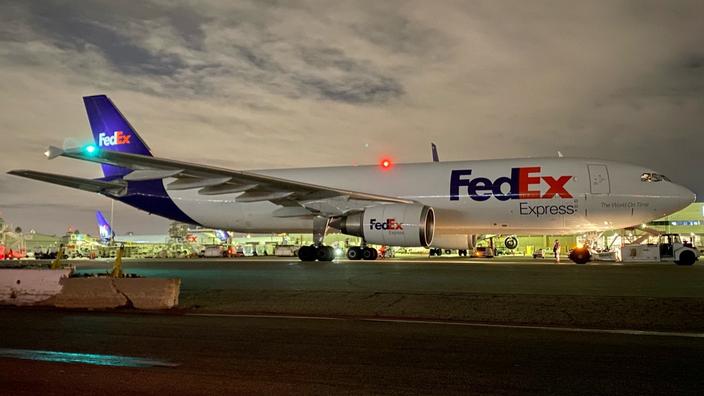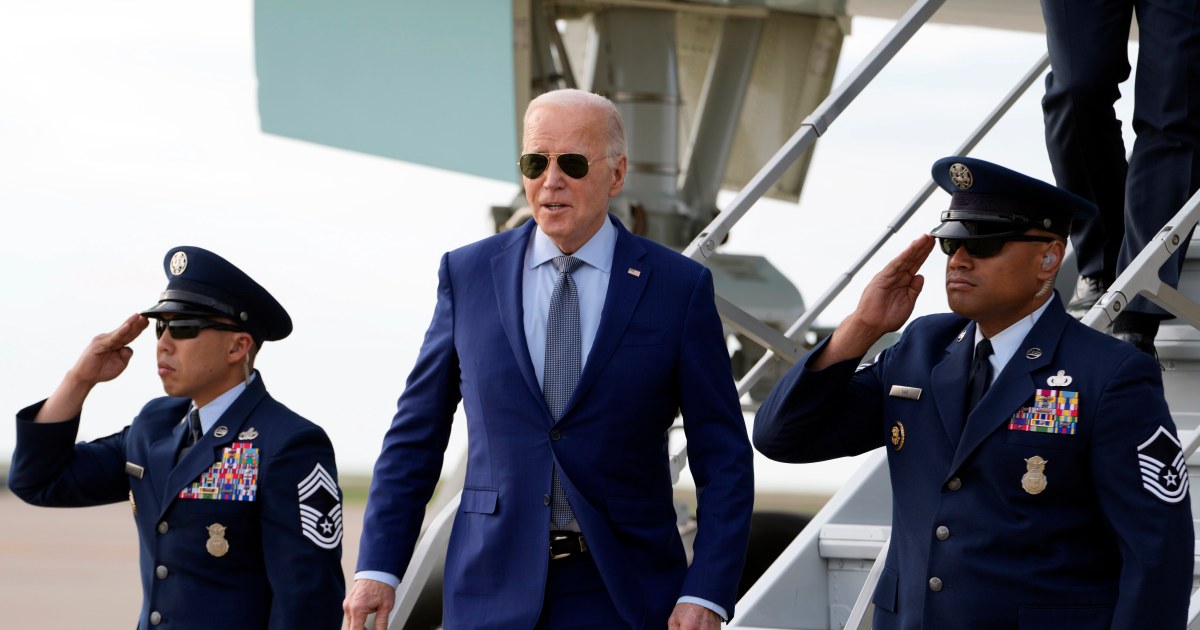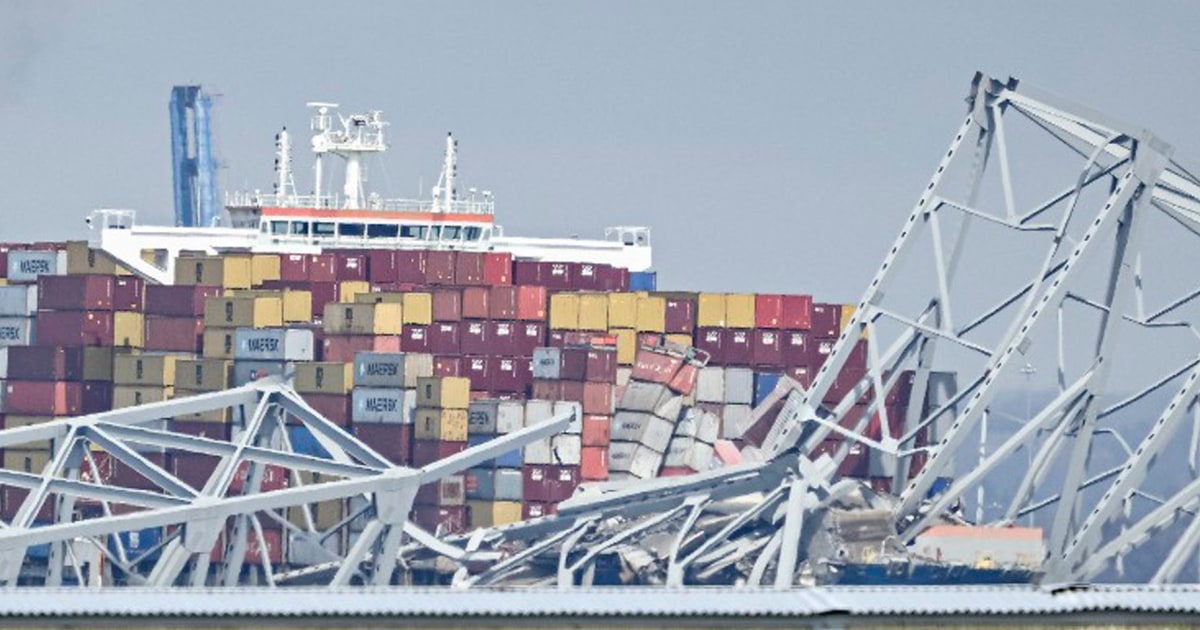Everyone has in mind the first planes landing in Roissy at the beginning of spring with the precious masks made in Asia.
Today, these products are no longer a scarce commodity and are imported by sea.
But air freight continues to do well: while the pandemic ravaged the planet, its turnover will have increased in 2020 by 14.9%, to 117.7 billion dollars according to Iata, the world association of air carriers. .
Quite the opposite of passenger traffic which collapsed with revenues divided by three (191 billion).
At first glance, the good fortune of the air cargo business is a mystery.
All the more so with the slowdown in world trade, the volumes of products transported by plane fell this year (- 6.2% from January to October).
Read also: Air transport: 2020, the year of disaster
In reality, this phenomenon follows an implacable logic.
“
Usually, half of the cargo that takes the plane is in the holds of
passenger
aircraft
,” said Arthur Barillas, founder of Ovrsea, an international freight forwarder.
Due to the drastic decrease in these flights, the supply of air freight has fallen sharply below the demand.
With the key to a vertiginous surge in prices: in May, on the Hong Kong-North America route, prices had doubled compared to February.
At the end of the year, they were still 80% above normal.
A little less accentuated, the phenomenon is also observed on the Hong Kong-Europe route.
Mango from Peru and PS5
In fact, the pandemic has made it possible to highlight the capital role of this activity: perishable foodstuffs (mangoes from Peru, flowers from Kenya, etc.), consumer electronics (PS5, iPhone 12, etc.), drugs, certain parts. industrial… A lot of goods with high added value are manufactured on the other side of the world and transported by plane to Western countries.
It might be ten times more expensive than the boat, but it makes it possible not to wait for the products for weeks.
Suddenly, only 1% of goods pass by air.
But as they are expensive, they represent 35% of the value of the products transported in the world.
And the economic crisis which weighs on certain sectors has changed the situation only at the margin.
"
Today, we have fewer requests to transport aeronautical or automotive parts by plane
", tempers Franck Noblet, general manager of TLF Overseas, which brings together international transport agents.
Read also: Generalized slump for air transport
Deprived of travelers, the big companies tried to reposition themselves urgently in the transport of goods.
“
Since the start of the pandemic, 2,500 passenger planes out of a global fleet of 20,000 aircraft have made at least one dedicated cargo flight
,” said Bob Lange, vice president of market analysis and forecasting at Airbus.
But this activity remains too marginal to allow the giants of the sky to recover.
In mid-March, American Airlines, which does not have an all-cargo aircraft, made its first flight without a passenger in the cabin but with the hold full of goods.
In the third quarter, the company flew 1,900 freight-only flights.
This activity generated $ 207 million in sales.
But that did not at all compensate for the drop in passenger traffic.
Overall, the company's sales plunged 73% to $ 3.2 billion and losses widened to $ 2.4 billion.
Air France-KLM is considering a recapitalization
Air France-KLM, which has six full-cargo planes, saw this activity climb by 31.7%, to 676 million euros in the third quarter.
Over the same period, the group still lost 1.6 billion with a turnover of 2.5 billion down 67%.
In short, the freighter is only a pear for the thirst for the big companies, not much more.
Product palettes for Nike or Zara
Moreover, this attempt to break into this market does not trouble the kings of air freight who have never done such good business.
“
Two types of players are benefiting from this development: all-cargo companies and express delivery specialists
,” underlines Mathieu Blondel, air transport expert at Arthur D. Little.
Atlas Air, Cargolux, Dnepr Volga… the leaders of the first category are unknown to the general public.
Normal because they work in the shadows, with a B to B economic model.
In their cargo planes, there are entire pallets of products ordered by brands or chain stores (Nike, Walmart, Zara, etc.).
These players, often medium-sized, only deal with air transport.
Others will look for the goods in Asian or African factories to put them in the hold.
In any case, with the dizzying rise in air freight rates, all their indicators are in the green.
Thus, according to the consulting firm Clive Data, these all-cargo devices have an average load rate of 65% this year against 49% in 2019.
Good health is reflected in their balance sheet.
The American Atlas Air Worldwide Holdings, which operates a fleet of 96 all-cargo planes, posted a net profit of 176 million dollars for the first nine months of the year, up 50%.
In the third quarter, its turnover reached 809 million, compared to 648 million last year at this time.
“
Turnover and profits have exceeded our expectations with strong growth in demand and high prices
,” noted the group's CEO, John Dietrich, recently.
The pandemic has driven consumers away from physical stores.
Helane Becker, analyst at Cowen investment bank
This improvement is a divine surprise because the all-cargo companies remained on a bad year 2019 penalized by the trade war between the United States and China.
"
We were living a very difficult period
," explains one within the Russian group Volga Dnieper which has 17 planes.
Suddenly things changed.
And now we are in good shape with a lot of cash.
To achieve this result, these companies have not been idle.
In particular, they had to reposition planes to new destinations such as Vietnam or Cambodia, whose workshops were ramped up when many Chinese factories were shut down in the spring.
The second big winners in this surge in air freight: well-known giants like DHL, UPS and FedEx, each of which has several hundred aircraft dedicated to transporting goods.
Since their creation, they have provided express delivery of parcels or envelopes anywhere in the world, from door to door and in B to B. This has made them natural partners in e-commerce.
Even if the end customers are individuals.
Concretely, these logisticians, who each employ several hundred thousand people, collect a lot of products made in Asia and deliver them to Western consumers at their homes.
The boom in e-commerce
Suddenly, these iconic brands have taken full advantage of the boom in the web merchant favored by the closure of stores during confinements.
“
The pandemic has made consumers move away from physical stores
, summarizes Helane Becker, analyst at the investment bank Cowen.
And “expressists” are reaping the benefits of this movement towards e-commerce.
In the United States, the share of internet sales rose in the second quarter to 16.1%, from 11.8% three months earlier.
In the European Union, online purchases increased by 30% in April.
A rise in power which allowed the "expressists" to achieve record results.
Thus, in the first quarter of 2020-2021 ended at the end of August, FedEx recorded a net profit of 1.2 billion dollars, up 53%, for a turnover of 19.3 billion, up 13.5 billion. %.
Read also: Praised and contested, Amazon ends a record year
Of course, these giants also have thousands of vans to pick up the goods from the factories or deliver the consumer who ordered.
But, as the pandemic has confirmed, these specialists are making the difference because, with their fleet of planes, they control the most critical link in the international logistics chain: air transport.
Only one actor has ventured into their field: Amazon.
Even if he uses the services of DHL and other UPS, the king of e-commerce has his own company to deliver orders to his customers.
Created in 2017, Amazon Air already has more than fifty all-cargo aircraft.
French alternatives for doing e-commerce
Not enough to worry express delivery specialists as the market outlook is favorable.
In a study published in mid-November, Boeing is optimistic: "
Global air freight traffic will increase by 4% per year over the next 20 years
", estimates the American aircraft manufacturer.
And, as passenger traffic is not expected to return to normal before 2024, supply will remain below demand to the delight of all-cargo companies and express delivery giants.
In 2021, these players will still take center stage with the delivery of Covid-19 vaccines worldwide.
A logistical challenge that once again generates big profits.









